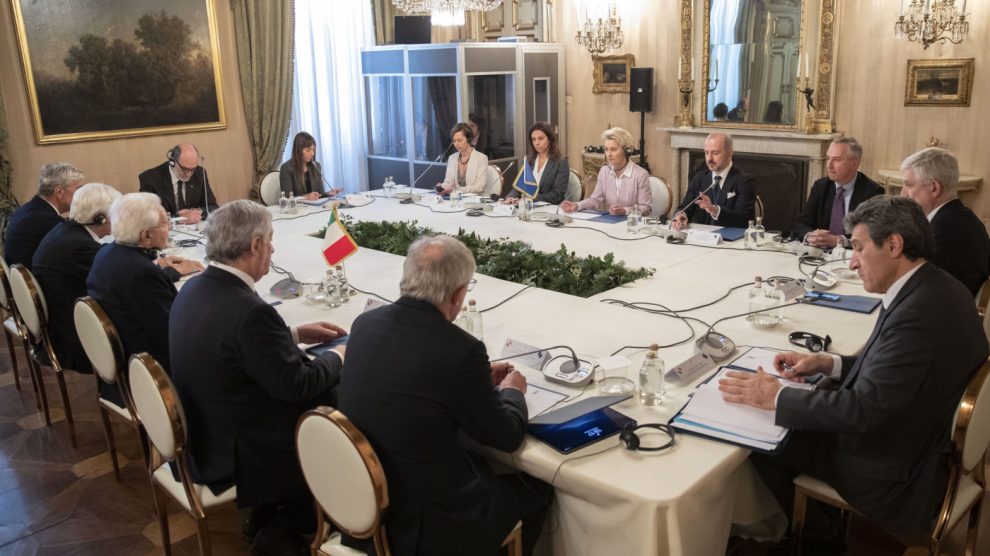Ursula von der Leyen’s day in Milan. The European Commission President travelled to the Northern Italian city on Wednesday for a series of events – including talks at Bocconi University, lunch at the Prefecture and the season’s opening at La Scala Theatre – along with President Sergio Mattarella, Prime Minister Giorgia Meloni and Foreign Minister Antonio Tajani.
- The day offered her chances to talk with the Italian politicians and touch base on the state of the country, its relations with the EU and its most pressing requests.
A European success story. Speaking with FM Tajani, President von der Leyen discussed Italy’s National Recovery and Resilience Fund – bankrolled by the EU to the tune of €190 billion, of which 67 have already been delivered upon Rome’s completion of the required reforms.
- The latters are “the engine of the Italian economy,” and their impact is “starting to become very visible,” remarked the EU official.
- Their exchange demonstrated the existence of “an excellent dialogue” between Brussels and Rome, reports Il Sole 24 Ore, quelling rumours of confrontational clashes between PM Meloni’s government and the EU.
The energy issue. Italy has been pushing to cap Russian gas prices since spring and was among the EU countries that rejected the Commission’s latest proposal, as it deemed it too high. Speaking on Wednesday, President Mattarella called upon Ms von der Leyen to provide a figure that is “realistic and effective.”
- Ms von der Leyen spoke of Italy’s “impressive diversification effort” that allowed it to cut its dependence on Russian gas from 40% to 10% of its total imports. The country is “the perfect example” of how to manage the crisis, she added.
- She also noted that countries with less fiscal space might resort to the RePowerEu plan to accelerate renewable energy scale-up. Italy may receive up to €9 billion under that scheme.
The fiscal shift. Taking stock of Italy’s long-standing request to reform the EU’s budget rules, the European Commission President spoke of Brussels’ intention to “restructure its policy on State aid” – which will help the bloc compete with the US and China’s subsidies on key industrial sectors.
- The EU, she added, is readying to “revise its economic governance” and “give the governments more flexibility to invest,” all while allowing for a “more gradual reduction of State debt.”
- As a highly indebted nation, Italy is set to benefit significantly from the planned reform.





